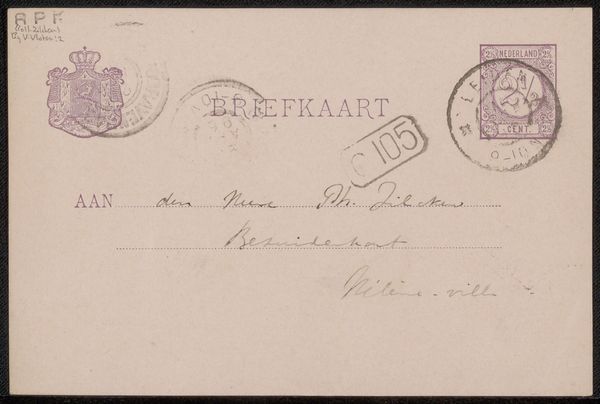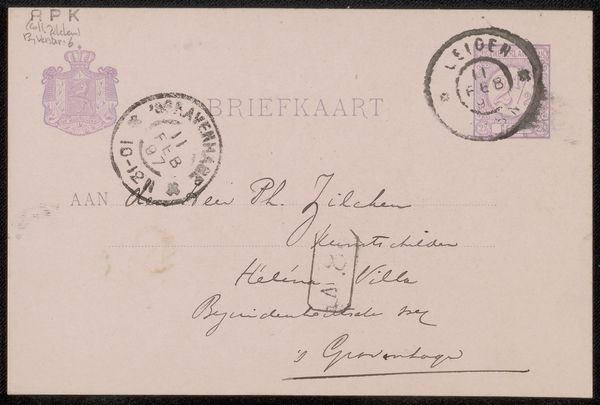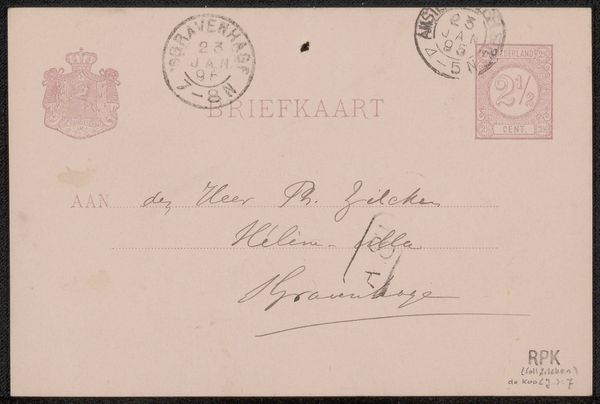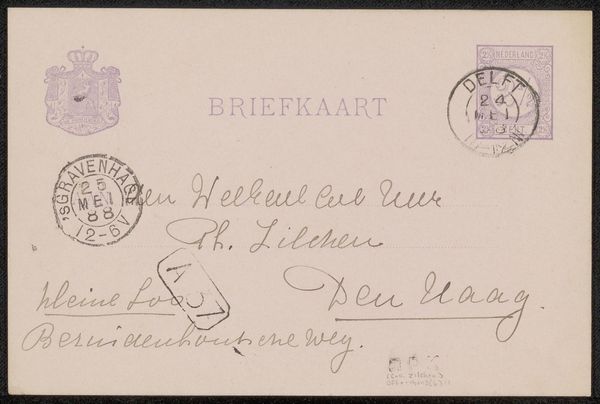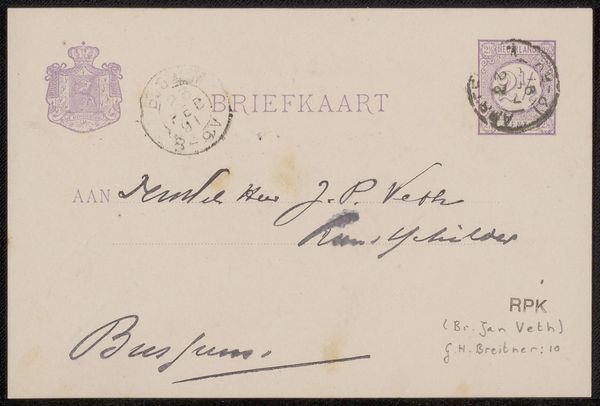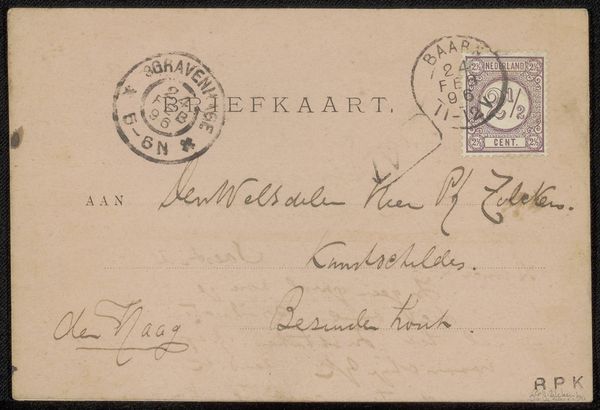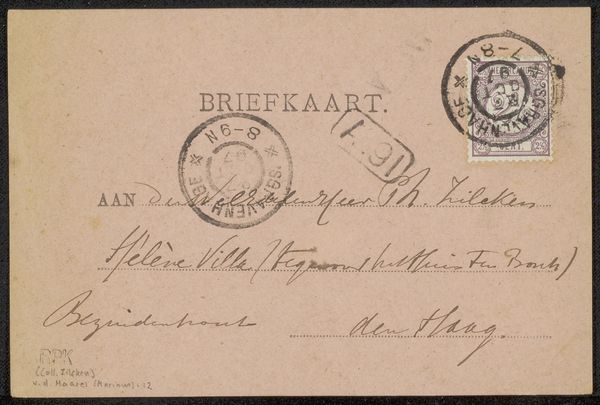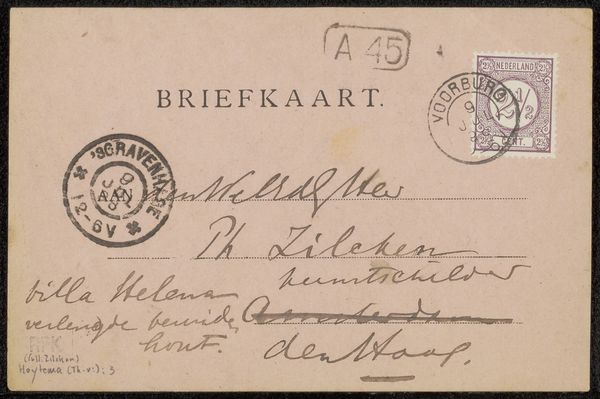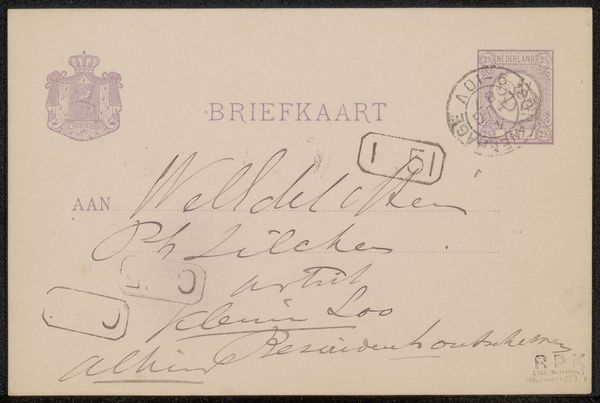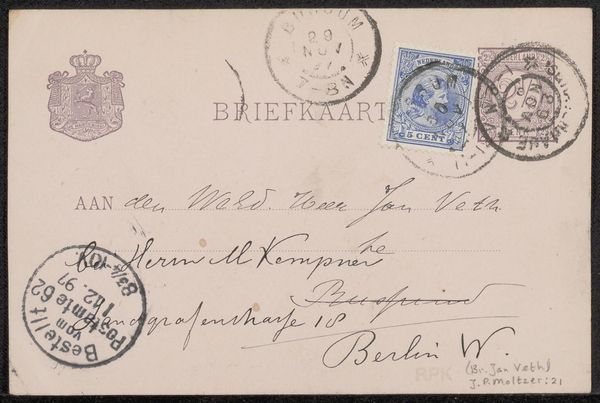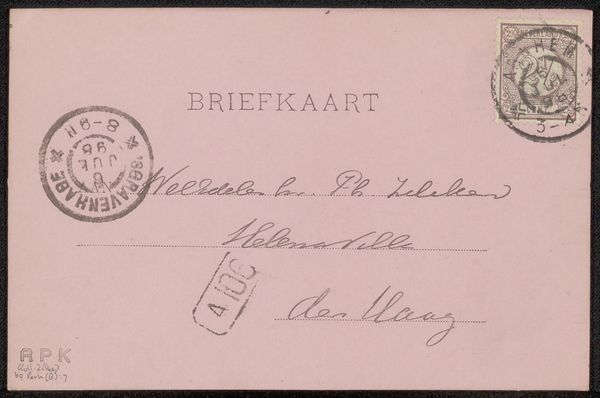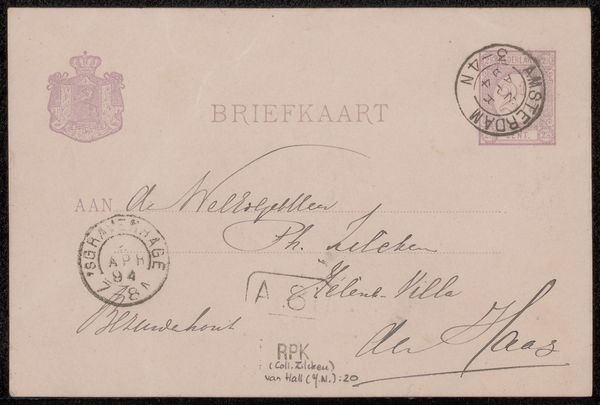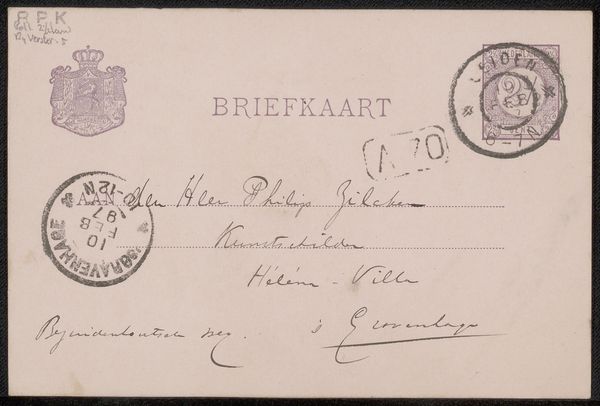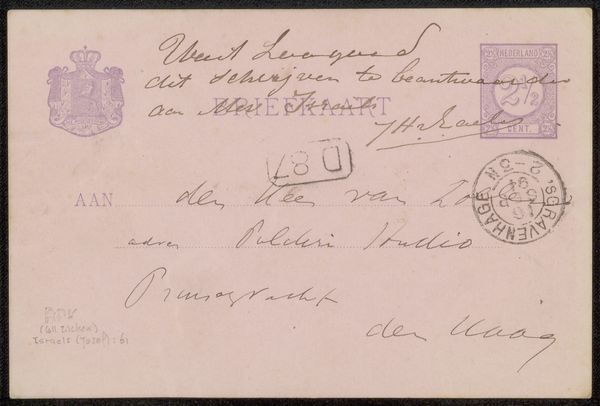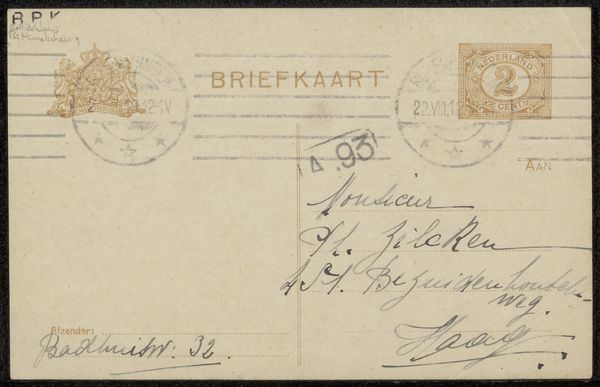
drawing, paper, ink
#
portrait
#
drawing
#
script typography
#
hand-lettering
#
old engraving style
#
hand drawn type
#
hand lettering
#
paper
#
personal sketchbook
#
ink
#
hand-drawn typeface
#
pen-ink sketch
#
pen work
#
sketchbook drawing
#
calligraphy
Copyright: Rijks Museum: Open Domain
Curator: Let’s discuss this postcard addressed to Philip Zilcken. Jacobus George Robbers created this work before 1897. The media involved are ink and paper, focusing on the artistry and hand-lettering. Editor: This gives me a lovely, antiquated feeling. It whispers of elegant stationery, doesn't it? I imagine the paper smelling faintly of lavender, capturing a snippet of daily life from long ago. The stamps feel like a sort of intimate language, each mark like a hidden secret, can you feel it? Curator: What interests me, apart from the address and various seals of authenticity on the envelope, is the production context. The material, humble though it seems, embodies both artistic creation and industrial production within the Dutch postal system. Paper as a commodity meets personal correspondence, revealing a specific system of labour and delivery. Editor: Right, and each imperfection feels almost intentional now. Those imperfect stamp impressions, that casual flourish in the script... they show human touch, defying the uniformity of our own manufactured ephemera today. It's interesting how much intention can come across even in the most common, ordinary thing. Curator: Precisely. The means of postal production also allowed artists to circulate sketches, blurring lines between official documents and private artwork. These pieces challenge conventional hierarchies, transforming functional pieces into historical artworks. Editor: Looking at this small rectangle, knowing it physically traveled between hands... It evokes the physical journey, something often lost today in our digital exchanges. This feels very grounded, literally and metaphorically. Curator: Agreed. By examining materials and their conditions, one gets more than sentimentality: there's social context. This transforms a postcard into an artefact capable of illuminating social interactions and modes of production. Editor: Definitely a whole different vibe when you understand what forces shaped it beyond just an image, or a casual sketch, wouldn’t you say?
Comments
No comments
Be the first to comment and join the conversation on the ultimate creative platform.
